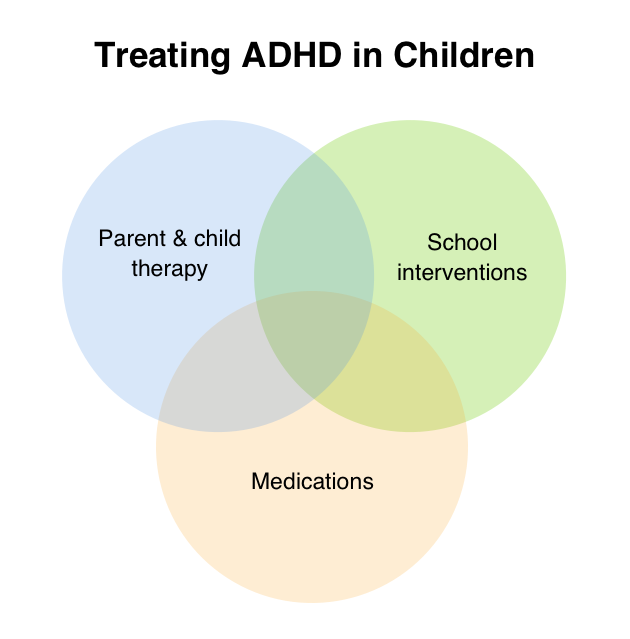Depression Doctor Care for Improving Emotional Health
Your Overview to Discovering the Right ADHD Treatment for Long-term Outcomes
Browsing the intricacies of ADHD treatment requires a nuanced understanding of both the disorder and the myriad choices offered for reliable management. It is important to recognize that what works for one individual may not always produce the same results for another.
Understanding ADHD and Its Influence

In adults, ADHD can cause challenges in office atmospheres, impacting productivity, time management, and interpersonal connections. Frequently, undiagnosed or incorrectly handled ADHD can add to co-occurring psychological health and wellness problems, such as anxiety and anxiety, further making complex an individual's general well-being.
The societal perception of ADHD can differ, leading to stigma and misconception, which may hinder individuals from seeking aid. As awareness expands, it is important to promote an environment that promotes understanding and support for those impacted by ADHD, emphasizing the requirement for exact medical diagnosis and tailored methods to alleviate its effect on daily life.
Summary of Treatment Options
A comprehensive approach to treating ADHD encompasses a variety of alternatives tailored to the individual's one-of-a-kind demands. These choices can extensively be categorized into behavioral treatments, psychoeducation, and way of living alterations, along with medicinal therapies that may be explored later on.
Behavior treatments, such as cognitive-behavioral therapy (CBT), focus on modifying specific behaviors and creating coping approaches to take care of symptoms efficiently. Psychoeducation plays a vital role in equipping both people and their households by supplying details concerning ADHD, its challenges, and reliable methods for assistance.
Lifestyle adjustments can considerably affect ADHD monitoring. Normal physical task, a balanced diet regimen, and sufficient rest add to total health and signs and symptom control. Mindfulness methods and relaxation methods can likewise improve emphasis and decrease impulsivity.
Support system and family members treatment can cultivate a sense of community and understanding, aiding individuals feel much less isolated in their experiences. Each therapy alternative should be thought about together with the individual's choices and scenarios, making certain an alternative approach that advertises lasting success. Eventually, the goal is to develop an individualized treatment strategy that deals with the specific obstacles related to ADHD while improving overall lifestyle.
Medicine: Pros and Disadvantages
Medicine plays a crucial function in the therapy of ADHD, with countless options offered that can dramatically reduce signs and symptoms for lots of individuals. Stimulants, such as methylphenidate and amphetamines, are typically suggested and have actually shown best therapy for depression performance in boosting focus, minimizing impulsivity, and improving general behavior. These medicines function by boosting dopamine and norepinephrine levels in the brain, which are typically dysregulated in those with ADHD.
However, using drug is not without its challenges. Some individuals might experience adverse effects, including sleep problems, lowered cravings, or raised anxiety. Discovering the right dosage can be a trial-and-error process, needing close monitoring by medical care specialists. In addition, not all patients react to energizer medicines, leading some to discover non-stimulant options, which might have a postponed onset of activity or different negative effects.
It is necessary for individuals and their households to evaluate these advantages and disadvantages carefully. Balancing the benefits of signs and symptom monitoring against potential side effects is crucial for achieving useful source optimum therapy end results. Partnership with doctor can assist in educated decisions, making sure that medication belongs to a comprehensive ADHD monitoring strategy.
Behavior Therapy Methods

One frequently employed technique is Cognitive Behavior modification (CBT), which assists individuals identify and transform unfavorable thought patterns that add to ADHD-related obstacles. Therapist for ADHD. With CBT, clients learn to set reasonable goals, manage time successfully, and establish organizational systems
One more efficient method is Moms and dad Monitoring Training (PMT), which educates moms and dads on exactly how to reinforce positive actions and reduce negative ones through constant technique and communication techniques. This strategy cultivates an encouraging home environment that encourages behavior enhancements.
Social abilities training is also integral, helping people with ADHD navigate social interactions better. Role-playing and modeling proper actions can improve social proficiency and minimize anxiety in social circumstances.
Lifestyle Changes for Better Monitoring
Just how can way of life adjustments substantially enhance the management of ADHD signs and symptoms? Applying strategic way of life adjustments can result in significant recommended you read enhancements in focus, organization, and psychological regulation for individuals with ADHD.
First of all, establishing a structured everyday routine helps in producing predictability, which can reduce sensations of overwhelm. Regular timetables for meals, research study, and rest can improve day-to-day performance.
Integrating regular physical task is additionally crucial, as workout has been shown to increase dopamine degrees, improving focus and motivation (Therapist for ADHD). Going for a minimum of 30 minutes of moderate exercise most days can be beneficial
Nourishment plays a crucial function as well. A balanced diet abundant in omega-3 fatty acids, whole grains, and healthy protein can support cognitive feature. Restricting refined sugars and caffeine might decrease signs and symptoms, as these can lead to energy accidents and impatience.
Verdict
Finally, finding the ideal ADHD treatment requires a multifaceted strategy that considers individual demands and preferences. A combination of medication, behavior therapy, and way of living alterations can dramatically boost signs and symptom monitoring and overall well-being. Engaging in psychoeducation and establishing organized routines better sustains efficient treatment strategies. Collaboration with medical care professionals and open interaction with support networks are vital components in browsing the intricacies of ADHD monitoring, eventually resulting in long-term outcomes and boosted high quality of life.